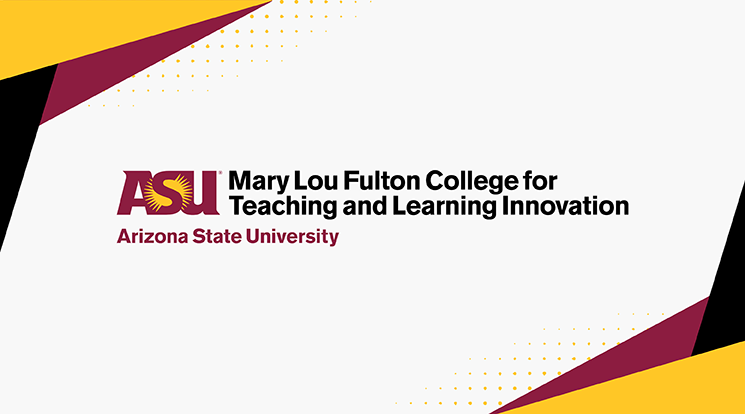MLFTC hosts CPED, which named ASU EdD “program of the year”

When Mary Lou Fulton Teachers College welcomed members of the Carnegie Project on the Education Doctorate to ASU’s West campus from Oct. 22 to 24, there was cause for local celebration. First, because MLFTC had been selected to host the semi-annual conference of CPED, an international organization of more than 100 public and private colleges that “... work together to undertake a critical examination of the doctorate in education through dialogue, experimentation, critical feedback and evaluation.”
Second, the MLFTC Doctor of Education degree in Leadership and Innovation had been selected as the “Program of the Year” by CPED, sharing the honor with a degree at the University of Hawaii Manoa.
And third, the foundation of that EdD degree, action research, was the subject of a TEDx talk presented live on Oct. 4 at Lakeland University in Wisconsin by Craig Mertler, the associate professor who directs the degree program for MLFTC.
Craig Mertler describes action research and how it makes the MLFTC EdD stand out.
CPED was founded in 2007 by 25 member institutions with support from the Carnegie Foundation for the Advancement of Teaching and a goal to redesign doctoral preparation for professional practitioners. Since then, membership in the University of Pittsburgh-based consortium has grown to 105 schools of education in the U.S., Canada and New Zealand. CPED’s convenings are held semi-annually in spring and fall.
The 2018 Fall Convening included CPED’s first virtual session for members unable to attend the West campus event. Titled “Leader-Scholar Communities at ASU: Lessons Learned, Lessons Shared, Lessons Inspired,” the webcast allowed Mary Lou Fulton Teachers College faculty members to share the LSC structure and mentoring processes embedded in their EdD program and to provide CPED members with ideas for creating LSCs at their own institutions. Leader-scholar communities at MLFTC comprise five to seven EdD students and one faculty member who meet regularly to provide each other with academic and personal support. Through LSCs, students work together, with faculty guidance, in the conceptualization, implementation and study of change initiatives.
When CPED named the ASU EdD as a program of the year, Mertler said the recognition spoke highly both of the degree and of CPED. “Our program was recognized as exemplary by this international consortium whose collective work raises the stature, rigor and reputation of education doctoral programs,” Mertler said. “Our EdD has been part of the consortium for more than 10 years, and to receive this type of recognition validates the innovative components of our program and its high level of academic rigor.”
Find out more about our Doctor of Education degree in Leadership and Innovation.